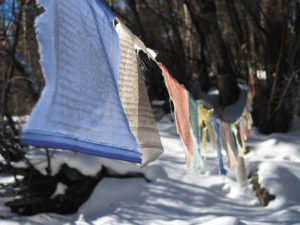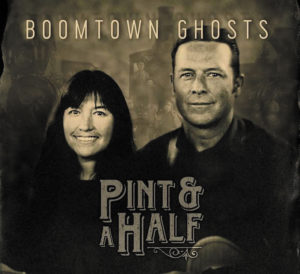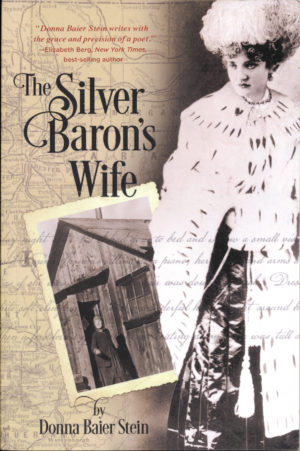By Hal Walter
As I write it’s autism awareness month and I find myself reflecting upon just how aware we really are as a society.
To kick things off, the White House was lit up blue. Yet the new education secretary and supreme court justice are not exactly known as champions of those with special needs.
Leading up to this month, and all through it, autism parents are bombarded with emails from well-meaning friends and family about the latest this or that to help your child, ranging from tennis-ball chairs to herbal supplements including cannabis, to various therapies or the latest Temple Grandin book. Most of us realize there is no magic cure. As one psychologist told me: “If you’ve met one autistic child, you’ve met one autistic child.”
Nevertheless, we are constantly fed an endless stream of nonsense stereotypes from healthcare professionals who should know better and the media which remains clueless. Kids with autism can’t stand loud or sudden noises, don’t like to be touched, won’t look others in the eye, are sensitive to bright lights, are not social beings … and so on and etc. While some or all of these may describe many kids, none of them is true about my son Harrison, who becomes a teenager this month.
We’ll also see plenty of feel-good stories about exceptional autistic kids who are piano prodigies, math geniuses or talented artists – savants. The truth is savants are rare. One brave mom, so annoyed by all this, was inspired to write a piece called, “My son has the kind of autism no one talks about,” describing the isolation she and her son experience due to his unpredictable behavior.
I totally get her frustration. Harrison is no savant, but is musically inclined, is a Minecraft wizard, and competes on the school’s running teams. He also was recently sent home from school and escorted to my car by sheriff’s deputies after grabbing a school administrator by the neck.
Here’s a sobering fact you probably have not seen on social media. More than 70 percent of autistic adults are unable to live on their own. The Centers for Disease Control recently reported that placing an autistic adult in a group home costs an average of $50,000 a year – more than a year’s tuition at Stanford and substantially more on average than it costs to incarcerate a criminal. The alarming fact is, if predictions hold true, we’re likely to soon have more autistic adults on our hands than we do convicts. An MIT researcher has even predicted that by 2025 about half of all kids will have autism.
[InContentAdTwo]
For autism awareness month, the editors at Colorado Country Life magazine, published by Colorado Rural Electric Association, arranged for me to write a cover article about Harrison’s participation in track and cross-country, and the inclusion and acceptance he has found in his school, hometown and the larger Central Colorado community. Suddenly, I was part of the “awareness” campaign. The challenge was to write one of those feel-good stories while also keeping it real. I found myself completely absorbed in this project, as if attempting to catch lightning in a bottle.
The electric association mails out 227,000 copies of the magazine to virtually every household on the electrical grid in rural Colorado – and also publishes online. It was for sure the largest audience I’ve ever had on this subject. What I ended up with was a story of triumph that reframes what it really means to “win” as opposed to the traditional sense.
I was overwhelmed by the response from people who called, sent notes and cards, emailed, commented on social media and even stopped by my house. One neighbor showed up at my door and handed me his copy of the magazine, saying he thought I’d need extra copies. As he walked away he said, “Thank you.” For what? I asked. “For writing that,” he said.
Also for autism awareness month, the school district in Raton, New Mexico, asked me to speak at its annual autism awareness event. It was attended by about 60 educators, therapists, parents, students and the school’s baseball team.
One of the messages I always try convey is that all people, including autistic people, are unique individuals, and that in the final analysis I may know a lot about Harrison and my own experience as a father, but really have no answers for others. Yes, I go to great lengths to involve him in outdoor activities, animals, music and sports, and to avoid social isolation. As much as I would like to believe these experiences help him, I have no proof this is actually true. It’s not exactly a double-blind study.
After the talk, one of the therapists thanked me, saying she appreciated my input that there is no concrete solution or specific correct response for any given child in any given situation. “People are always looking to us for answers, and we don’t really have them.”
On the way home from Raton we stopped in Trinidad to pick up a few grocery items. During this short shopping excursion I had several wild incidents with Harrison as he demanded I purchase various junk-food items, clocks, paper plates, a fan and an Amazon gift card. As we wheeled up to the checkout, I felt exhausted.
The couple ahead of us kept looking our way as I tried to manage Harrison, a shopping cart and getting our items onto the conveyor. Finally the woman turned and said, “Excuse me, but could you answer a question?”
I said sure, thinking she was just going to flat out ask if Harrison has autism.
“Are you the two who were in the San Isabel electric co-op magazine this month?”
Surprised by this seemingly random yet meaningful coincidence, I told her, yes, that’s us.
“I thought so,” she said. “Thank you for writing that. It was very inspiring.”
The following week, track season began with a meet in Monte Vista. I thought on the long drive about how a lot of people might now recognize Harrison from the magazine article. I recalled how after a track-meet meltdown last spring a close friend suggested I look into Special Olympics. I quickly disregarded this because I know Harrison possesses the ability to run with the neurotypical kids when he can just get out of the way of his own mind. Now here I was, a year later, again wondering how this day and meet would play out.
As I was getting Harrison ready to run his events, which are the 400-meter dash and the 800-meter run, I noticed a coach from another school helping a boy get checked in and to his starting position on the track, just as I do with Harrison. Just as I have done and will continue to do, so long as he wants to participate.
Both of these athletes ran solidly determined races, and if you were in the bleachers and didn’t know any different, they were just two boys running on their school teams. Perhaps there is hope for real awareness after all.



